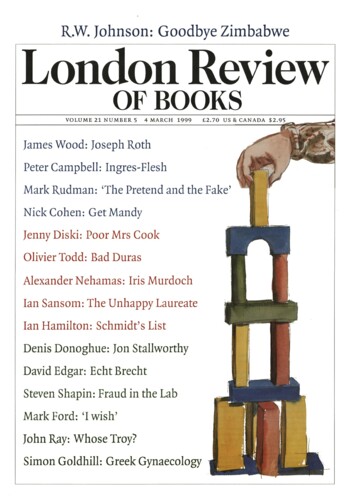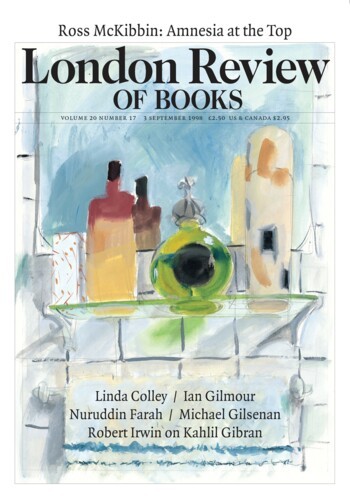Women at the Mercy of Men: Greek Gynaecology
Simon Goldhill, 4 March 1999
There is a disease which affects young girls, particularly around the onset of menstruation. It is known colloquially as ‘the horrors’, and its symptoms are evident. The disease makes adolescent girls violently aggressive, and commands them ‘to leap around, to fall down into wells and to hang themselves’ – to ‘take on a desire for death, as if it were a good thing’. Although, as with so many female complaints, the mind is affected as the disease progresses, the primary cause is physiological and connected to the bodily changes of puberty. ‘When the blood is flowing all the more copiously, because of nourishment and the increase in bodily size, and when the blood still has no means of egress, the blood leaps up from this surplus to the diaphragm.’ The cure: ‘my advice to young girls who suffer this is to have sexual intercourse with a man as soon as possible.’ Best of all, is to follow this with pregnancy and childbirth (where the blood really flows).’‘


